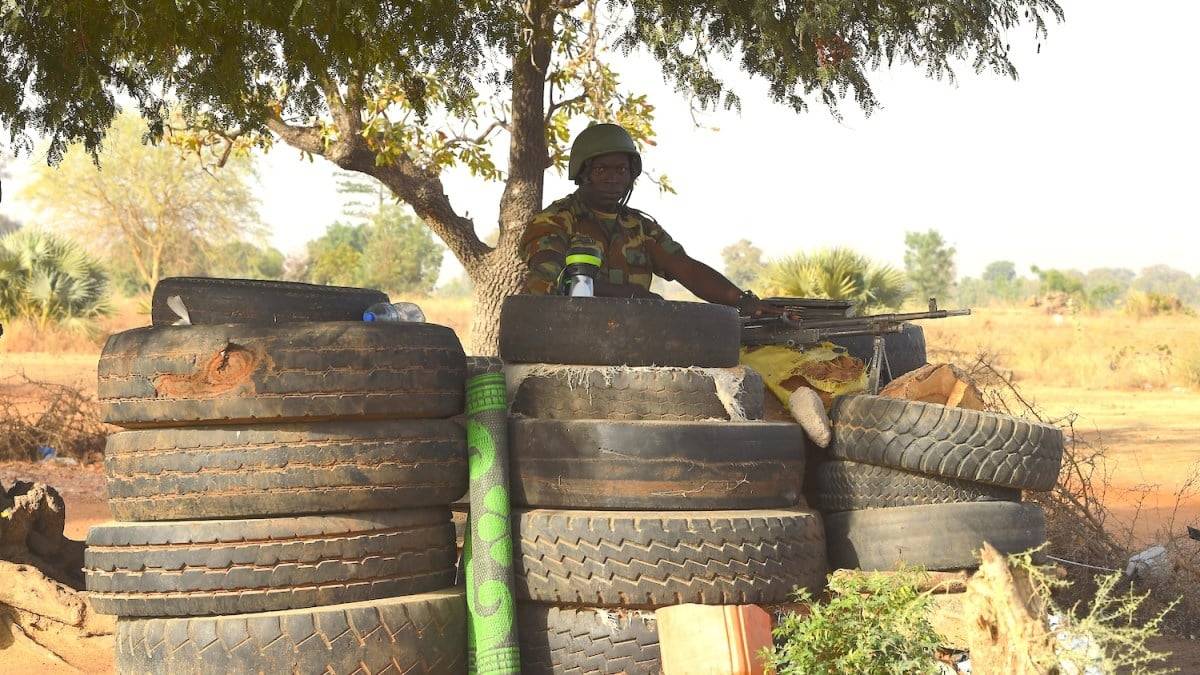Islamist Extremists Target Ghana, Togo, and Benin
Extremist Islamist groups, including Jama'at Nusrat al-Islam wal-Muslimin (JNIM) and the Islamic State in the Greater Sahara (ISGS), are making a southern thrust from the Sahel and increasingly posing a menace to Ghana, Togo, and Benin's security. There are many different reasons which are stoking up the heightened violence and instability and some of them are military pressure in the Sahel region, economic hardship, and porous borders which allow militants to transit with relative ease.
Expansion of Islamist Extremists into Coastal West Africa
The primary motivation for this push southward is the increasingly robust counterterror operations in Mali, Burkina Faso, and Niger that have pushed extremist groups to seek new operational bases. Burkina Faso, in particular, has launched extensive military operations, such as Operation Laabingol, that have severed jihadist supply lines and pushed fighters into more poorly defended areas in neighboring coastal countries. In addition, growing competition between JNIM and ISGS in the Sahel has led JNIM to establish new fronts to avoid direct confrontation with ISGS fighters, especially in the Tillaberi region of Niger, where ISGS is well-established.
A second determining factor is these coastal states' economic and social vulnerability. In northern Benin, for example, there are marginalized communities that extremists exploit for recruitment purposes by preying on local grievances against the government. Similarly, Ghana's northern border with Burkina Faso has seen heightened criminal and arms activity, fueled in part by economic instability and youth unemployment. There are some indications that Ghanaian youths are recruited by extremist networks under financial rather than ideological motivations.
Terrorist Activity and Attacks in the Region
Benin has seen a rise in terrorist attacks, with the death toll staying high in the last few years. The W-Arly-Pendjari complex, a transboundary park spanning Burkina Faso, Benin, and Niger, has also been used as a strategic fallback for jihadist groups to organize cross-border attacks. Benin launched Operation Mirador in 2022, deploying thousands of troops to secure its northern regions, but extremist activity persists.
Togo has also seen increased violence, with a 45% rise in militant-related fatalities in 2024. The attacks have largely been on security forces and rural towns as extremists seek to establish footholds in the country's northern areas.
In Ghana, the situation is less acute but increasingly concerning. Security experts warn that insurgents could exploit internal conflicts, such as ethnic fighting in the northern town of Bawku, where local militias have engaged in pitched battles. Ghana's 600-kilometer open border with Burkina Faso is also a serious security threat, with extremists capable of entering the country undetected. The government has responded by escalating military operations and working with international allies like the U.S. and the EU to improve security infrastructure.
Government and Regional Responses
Benin, Togo, and Ghana have all moved to respond to the growing extremist threat. Benin has established the Agence Béninoise de Gestion Intégrée des Espaces Frontaliers to manage border security while operating through nongovernmental organizations like African Parks to monitor and protect vulnerable areas. Togo has invested in regional security programs, and Ghana has increased military training exercises and is in the process of establishing a War College to enhance its defense capabilities.
International partners, including the United States and the European Union, have also entered to provide military and economic assistance. In 2024, the U.S. pledged $100 million in support to Ghana, Benin, Togo, Côte d'Ivoire, and Guinea to assist with conflict prevention.
Despite such efforts, experts warn that heavy-handed security crackdowns may not suffice. Decreasing economic inequalities, improving governance, and strengthening the resilience of local communities to radicalization will be crucial to preventing additional extremist inroads.
As Islamist insurgencies push their way towards the Gulf of Guinea, Ghana, Togo, and Benin face an existential challenge to maintaining their stability. Without concerted regional action, the threat is only likely to grow, endangering not just these nations but the broader West African security context.




No comments yet
Be the first to share your thoughts!